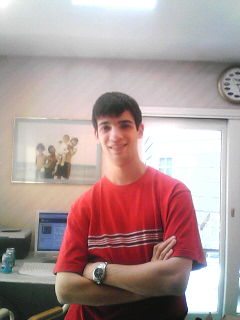USMLE study tips
So we started learning test taking skills this week, and we had somebocy come in and talk to us about improved studying methods. Unlike what we got back at Drexel these seemed pretty good, so I'm posting them for you. Also a fun self test at the end.
A key theme was time effectiveness adn that it makes more sense to study less material and know it well rather than more material but not know it very well. The big statistic was that students who reviewed the same day retained 80% of what they knew after several days, but students who didn't only retained 30%. So basically, even if reviewing made you cover half as much material (which won't happen) you'll still be much better off AND at least you'll know what you know instead of forgetting random bits. So what else made effective studying?:
1. Review the SAME DAY!
2. Having done that reviewing a week later is also helpful. Otherwise its just a temporaty boost again.
3. Active learning is key. Whether you're reading a book or watching a lecture ask questions (to yourself or professor) or try to anticipate what's being said or anything to stay involved. It's hard but do you want 80% or 30%. That's double the studying with worse long term results.
4. Most medical schools teach people to just do recognition or link two words together. You want to know it well enough so you can explain it and have a bunch of facts together.
5. In that vein, group studying is good. If you're by yourself and you think you know something, but really don't you won't find out until the test (boo). In a group other people will provide a check.
6. People can only really memorize about 5 things at a time so if you have a drug or microbe with more than 5 qualities, just pick 5 to study for one day. You can do another 5 the next day if you want. If you try to memorize 10 features at one time you'll just get confused and remember 1 or 2 2<5. Wish I had known that one.
7. If you have two subjects that are very similar (e.g. nephrotic syndrome-nephritic syndrome or glaucoma-cataracts) study them on separate days. If you do them on the same day you'll just get confused.
8. A lot of times covering less material but knowing it really well can be better than covering more material but forgetting half.
9. People seem to need 7 hours of sleep for full long term memory. Sorry, wish it was different, but that's what the studies say.
10. Vizualizing a picture while memorizing is way better than just repition. see quiz below.
Some more USMLE specific stuff that might apply to you anyway.
So one of the big differences with the USMLE is that pass is 58% and high scores are 75%. So basically to pass they only expect you to know maybe 48% of the questions to pass or less if you can do a decent guess on the remainder. In fact the people who get high scores don't really know many more questions straight out. What they can do is cut the remainder down to 2 choices. 50%-known + .5*50% educated guess = 75% top score. This is a good thing because the material is way too much to know it all.
So for the USMLE its particularly imporatant to know less volume, but know it really well.
Example: A few years ago CMS was teaching thousands of drugs and getting lousy pharm scores on USMLE. So one year they cut it down to the 200 most prescribed drugs and scores improved. The next year they took a RANDOM sample of 100 those drugs and taught those and scores went up again! Even though, no moatter how you looka at it they were missing half the important drugs.
They also gave us a little fun quiz to test how you learn best. Basically, they said 3 sets of 7 word pairs alouds one after the other, and for each set of 7 pairs we'd try memorizing it a differnet way. First by visualizing it, then by repeating it to ourselves and finally by forming sentences with the words. Then they read the first word from each set and we had to try to write down the other word. So you can tell yourself what worked best for you. So you don't have to make up your own list of random words I'm putting one here. If you have someone to help you you can do it just like that. Otherwise, I guess read the words yourself and then you can either try remembering them without a hint, or I'll put the hint words in the comments and you can check there. Have fun!
Visualize
ball rabbit
houe leaf
spoon orange
fish door
arm dog
desk year
mountain shoe
Repitition
coal horse
stone paint
ankle window
chalk spider
coin rain
wing river
table woman
Form a sentence with the two words.
car book
castle child
boat snow
hand night
square forest
wall job
flower bank
So now either jsut try to remember them without hints or go to the comments for hints.


1 Comments:
visualization
ball
house
spoon
fish
arm
desk
mountain
Repitition
coal
stone
ankle
chalk
coin
wing
table
Sentences
car
castle
boat
hand
square
wall
flower
Post a Comment
<< Home